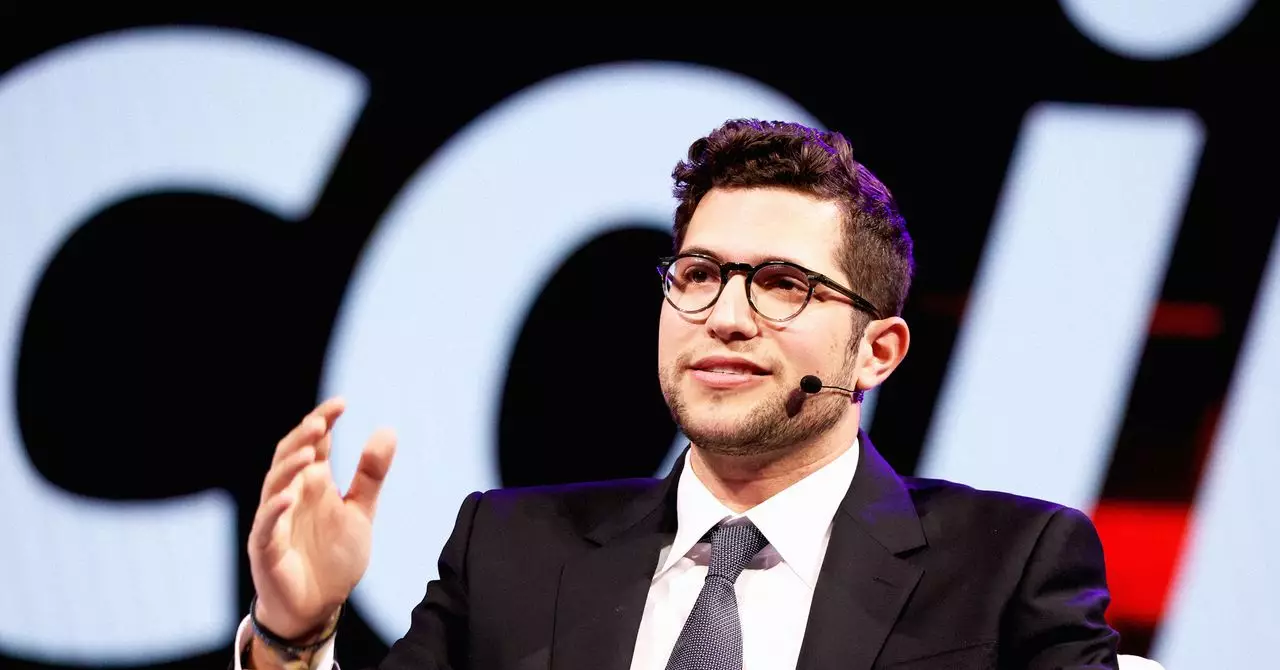In a remarkable intersection of finance and politics, Cantor Fitzgerald—a powerhouse of Wall Street led by the sons of a prominent government official—is embarking on an innovative venture that transcends traditional investment strategies. Instead of merely trading stocks or bonds, the firm is positioning itself as a catalyst in a high-stakes legal battlefield over President Donald Trump’s controversial tariffs. This move not only underscores the ingenuity of modern financial engineering but also highlights an unsettling trend: the blurring of lines between political policymaking, legal disputes, and financial speculation.
What makes Cantor Fitzgerald’s initiative truly provocative is its strategic framing. The firm is facilitating a means for investors to bet against the tariffs, essentially wagering that these import duties, mandated by the Trump administration, will be invalidated by courts. This is a stark departure from conventional investment practices—here, the firm acts as a sort of legal hedge fund, acquiring rights to potential refunds companies might claim if their legal challenges succeed. Such a mechanism transforms a political and legal issue into a speculative instrument, amplifying the financialization of policy disputes.
This approach raises critical questions about influence and impartiality. The sons of Howard Lutnick, a longstanding figure at the helm of Cantor Fitzgerald, now lead an enterprise enveloped in the political machinations of the current administration. While Lutnick himself publicly supports tariffs, the firm’s new financial products indicate an opportunistic flexibility—one that capitalizes on the uncertainty surrounding these trade policies. The fostering of such markets reflects a tendency where financial institutions leverage legal and regulatory vulnerabilities for profit, turning what might be marginalized legal claims into lucrative opportunities.
The Deepening of Litigation Finance and Its Ethical Quagmires
At its core, what Cantor Fitzgerald is engaging in resembles litigation finance—an expanding industry where investors fund legal actions in exchange for a share of the proceeds. This practice, while not new, is becoming increasingly sophisticated, with firms seeking to cash in on lawsuits that have yet to produce a verdict. The firm’s willingness to purchase rights to hundreds of millions of dollars of potential refunds exemplifies how litigation finance is evolving into a mechanism for speculating on legal outcomes—especially when those outcomes have profound economic consequences.
However, this practice isn’t without controversy. Critics argue that turning legal disputes into tradable commodities can distort justice, incentivize frivolous claims, and prioritize profit over fairness. When firms like Cantor Fitzgerald offer to buy rights to refunds at discounts—say, 20 to 30 percent—companies that paid tariffs are essentially executing financial arrangements based on uncertain legal rulings. This setup could pressure companies into accepting less-than-ideal settlements or prolong legal battles for financial gain, undermining the integrity of judicial processes.
The intertwining of finance and law opens the door to ethical dilemmas, particularly when influential financial firms and powerful political connections collide. The fact that Cantor Fitzgerald’s leadership is intertwined—via family ties—to the Trump administration invites scrutiny about the impartiality of any legal or regulatory processes related to tariffs. Although an official from the Department of Commerce claims Lutnick has no insight or strategic control over the firm’s new ventures, the underlying implications are hard to dismiss: powerful financial entities are actively betting on the success or failure of government policies, wielding influence through the markets rather than the ballot or the courtroom.
Financial Influence and Political Patronage in a New Era
The story of Cantor Fitzgerald’s latest moves reveals a disturbing reality: big finance is increasingly embedded in the political economy, capable of shaping legal outcomes while profiting from them. The company’s capacity to trade hundreds of millions of dollars’ worth of tariff refund rights signals not just an aggressive business strategy but also exposes the vulnerability of regulatory and legal systems to financial manipulation.
Moreover, the involvement of high-profile firms in speculative legal markets highlights an alarming trend. When legal disputes become financial commodities, the pursuit of justice can take a back seat to lucrative bets—turning complex policy questions into simple investment opportunities. This paradigm invites questions of legitimacy and fairness, especially given the political nature of tariffs and the apparent political ties of the firms involved.
Such practices risk creating a dual track—one where legal justice is skewed in favor of those with access to financial tools and influence, thereby exacerbating inequality and undermining democratic accountability. The intricate dance between political power, financial ambition, and legal ambiguity underscores a future where financial influence often has the final say, often at the expense of equitable policymaking and justice.
While Lutnick publicly claims ignorance of these financial ventures, the underlying connections tell a more complex story—one where influence, opportunity, and profit converge at the intersection of law and politics. As this trend accelerates, it becomes evident: the future of finance may no longer lie solely in the markets but increasingly within the corridors of legal and political power—shaping outcomes in ways that could redefine the very fabric of accountability and fairness in a democratic society.

